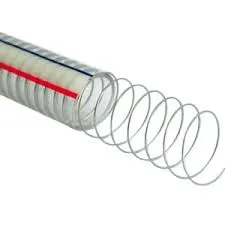High-Quality LPG Cooker Hose | Safe & Reliable Cooking Solutions
Understanding LPG Cooker Hoses Importance, Safety, and Selection
When it comes to utilizing liquefied petroleum gas (LPG) for cooking, having the right equipment is crucial for both efficiency and safety. Among the essential components of an LPG cooking setup is the LPG cooker hose. This article delves into the significance of LPG cooker hoses, safety standards, and tips for selecting the appropriate one.
The Role of LPG Cooker Hoses
LPG cooker hoses function as the conduit between your gas supply and cooking appliances such as stoves, ovens, and grills. These hoses are specifically designed to handle high-pressure gas and must maintain their integrity over time to prevent leaks. A high-quality hose ensures a steady flow of gas to the appliance while minimizing the risk of accidents, making it a vital part of any LPG setup.
Safety Standards and Regulations
Safety is paramount when dealing with any gas-related equipment. LPG hoses must meet specific safety standards set forth by regulatory bodies to ensure safe usage. These specifications typically include factors like pressure tolerance, resistance to weathering and abrasion, and non-combustibility. In many countries, hoses are required to be certified by recognized organizations to ensure they have passed rigorous testing for durability and safety.
It is also important to regularly inspect your LPG hose. Visual checks can help identify any signs of wear, cracks, or leaks. If you detect any anomalies, it is vital to replace the hose immediately to prevent potential hazards. Remember, even a small leak can lead to dangerous situations, including fire risks and gas poisoning.
lpg cooker hose

Choosing the Right LPG Cooker Hose
Selecting the right LPG cooker hose involves several considerations. Firstly, check the specifications of your gas appliances. Different appliances may require hoses with different diameters or pressure ratings. Ensure the hose you choose is compatible with your cooker to guarantee optimum performance.
The length of the hose is also a crucial aspect. It should be long enough to connect your LPG supply and appliance comfortably without excessive slack. However, avoid overly long hoses as they can reduce gas pressure and flow efficiency.
Material matters too. Most LPG hoses are made from either rubber or PVC. Rubber hoses tend to be more flexible and durable, making them a popular choice. However, they may also require regular inspections due to their susceptibility to aging and wear. PVC hoses, on the other hand, are lightweight and resistant to many chemicals, but may not be as durable as their rubber counterparts.
Conclusion
In conclusion, an LPG cooker hose is an essential component of any cooking setup that utilizes liquefied petroleum gas. Understanding the importance of proper selection, regular maintenance, and adherence to safety standards can significantly enhance cooking safety and efficiency. Whether you're a culinary enthusiast or simply enjoy home-cooked meals, ensuring that your LPG system is equipped with a high-quality cooker hose can make all the difference in your kitchen experience. Always prioritize safety, conduct regular checks, and consult with professionals if you are ever in doubt about your LPG equipment.
-
Top Quality Oxy Acetylene Hoses for Sale Fit for Welding DemandsNewsJul.28,2025
-
The Future of Pneumatic Air Tubes in IndustryNewsJul.28,2025
-
Superior and Reliable LPG Hose Pipe Solutions for Every NeedNewsJul.28,2025
-
Exceptionally Durable and Versatile Premium Braided PVC TubingNewsJul.28,2025
-
Best Adapters for Connecting Garden Hose to PVC Pipe ConnectionsNewsJul.28,2025
-
The Essential Role of LPG Hoses in Safe and Efficient Gas DistributionNewsJul.16,2025














